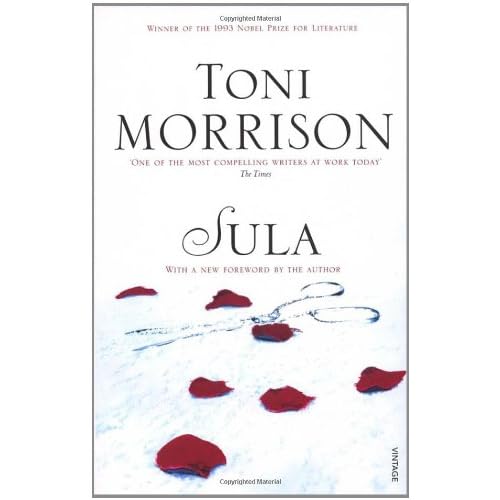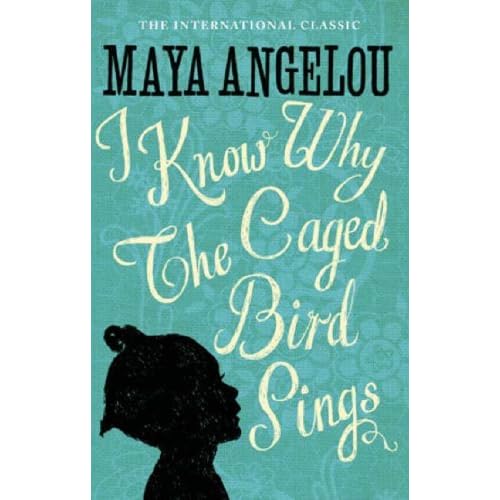Having previous read both, Half of a Yellow Sunand Purple Hibiscus, I was quite happy when I received this as a Christmas present last year. The only concern I had was, my track record with collections of short stories - for the most part, I'm not a fan. "For the most part" being the key phrase. This collection mainly focuses on African immigrants in America, and the lives they live, the experiences they succumb to - by virtue of their past. Or their present. Slightly reminiscent of say, The Joy Luck Clubor The Namesake. Barring a couple of stories, this isn't really brand new territory, but Adichie's writing and story-telling continues to impress. That said, my biggest complaint with short stories, i.e. the lack of closure, still holds. And, as a reader, one's left craving more - more about the characters, and more about what happened next.
The Arrangers of Marriage is one such story. We don't get much insight into the characters, or what makes them click. So, when the story ends, there's a sense of incompleteness; of wanting more, because the motives of the narrator hasn't really been touched on. Or, what makes her click.
The two stories, Jumping Monkey Hill and the title story both tick off the feminist criteria. Jumping Monkey Hill is based in an African writer's camp in Cape Town, where a group of people are meant to write a short story under the direction of a Brit whose passionate about African literature. Sexism and racism are both rampant in the story, as it hits home the underlying point: why do we always say nothing?
In The Thing Around Your Neck, a young girl goes to live in America with her uncle, after winning the Green Card lottery. When her uncle makes a pass at her, she runs away, and tries to make a life for herself.
Cell One, the opening story, was probably the most powerful of them all. In an age where the cult-culture is so prevalent, we meet a rich family, whose only son belongs to a cult indulging in debauchery and hedonism, and has been imprisoned for breaking and entering. In prison, when the teenager speaks up against the mistreatment of an older gentleman, he is beaten and thrown into the infamous Cell One. Eventually, unsurprisingly, he is released, but forever changed.
The other stories, some based in Nigeria during riots and wars, and some on immigrants in America are beautifully written. However, they are all within what is expected, and don't really astonish or surprise... or wow. The raw emotions and startling vivid descriptions that made Half of a Yellow Sun so gripping are amiss, which is unfortunate. None of the stories give us a new perspective into Africa, or a new insight into America. Under different constructs, all the stories have been told before. And it's that which left me feeling as though there was more to be desired from this collection.
 Spanning almost forty-five years (1921-1965), Sula revolves around two best friends: Sula and Nel, and how their friendship evolves and implodes over the years.
Growing up in a poverty-stricken black town in Ohio called Bottom, Sula is accustomed to men coming and going, as they please. Her mother and grandmother are fiercely independent women, and after her father died, her mother (Hannah) is keen for companionship, and doesn't really care if the man is married or not. Still, Hannah is well-liked, despite sleeping with half the married men in the town... That stands testimony to the richness of the characters - that Morrison can make someone quite despicable come across as a lovely person.
Spanning almost forty-five years (1921-1965), Sula revolves around two best friends: Sula and Nel, and how their friendship evolves and implodes over the years.
Growing up in a poverty-stricken black town in Ohio called Bottom, Sula is accustomed to men coming and going, as they please. Her mother and grandmother are fiercely independent women, and after her father died, her mother (Hannah) is keen for companionship, and doesn't really care if the man is married or not. Still, Hannah is well-liked, despite sleeping with half the married men in the town... That stands testimony to the richness of the characters - that Morrison can make someone quite despicable come across as a lovely person. I apologise for my thoughts on this book at the very outset. I'm going through a bit of a stressful phase right now, and while normally, it doesn't affect the way I approach books, I'm not completely convinced that it hasn't this time 'round. I mean, The Long Song was longlisted for the Orange Prize, and it's on the Booker longlist as well. It's got to be a good book, right?
Well, I didn't finish it, and it wasn't for lack of trying! I put it aside at 150 pages - my edition had 308 pages, so I did read about half of the book, and it failed to engage me at any level. Strange, because the subject matter is intense and well, more often than not, I end up empathising and sympathising with the protagonists and narrators of such stories. This time - absolutely nothing.
I apologise for my thoughts on this book at the very outset. I'm going through a bit of a stressful phase right now, and while normally, it doesn't affect the way I approach books, I'm not completely convinced that it hasn't this time 'round. I mean, The Long Song was longlisted for the Orange Prize, and it's on the Booker longlist as well. It's got to be a good book, right?
Well, I didn't finish it, and it wasn't for lack of trying! I put it aside at 150 pages - my edition had 308 pages, so I did read about half of the book, and it failed to engage me at any level. Strange, because the subject matter is intense and well, more often than not, I end up empathising and sympathising with the protagonists and narrators of such stories. This time - absolutely nothing. I've wanted to read this book for ages, simply for the title, which is one of the most beautiful titles I've ever come across. So, I finally picked it up, and it's probably one of the most beautiful autobiographies I've ever read. On reading the blurb, I thought it would be similar to the Pulitzer Prize winning The Color Purple. While both books have a prominent thread of racism running through, the similarities end there.
I Know Why The Caged Bird Sings is the coming-of-age story of Maya Angelou, born Marguerite Ann Johnson, set in Stamps (Arkansas), St. Louis and San Francisco. Initially, she lives in Stamps with her brother, Bailey, her grandmother who she calls Momma, and her Uncle Willie. Momma, a no-nonsense unemotional religious Christian, owns the only store around, and is respected and well-liked by all - whites and blacks. While their parents are in California (doing goodness knows what), Momma brings the two children up, with proper morals and values. In fact, when Maya uses the phrase "by the way" passingly, she is admonished for using the Lord's name in vain. And she cannot admit to liking Shakespeare, as he was white.
I've wanted to read this book for ages, simply for the title, which is one of the most beautiful titles I've ever come across. So, I finally picked it up, and it's probably one of the most beautiful autobiographies I've ever read. On reading the blurb, I thought it would be similar to the Pulitzer Prize winning The Color Purple. While both books have a prominent thread of racism running through, the similarities end there.
I Know Why The Caged Bird Sings is the coming-of-age story of Maya Angelou, born Marguerite Ann Johnson, set in Stamps (Arkansas), St. Louis and San Francisco. Initially, she lives in Stamps with her brother, Bailey, her grandmother who she calls Momma, and her Uncle Willie. Momma, a no-nonsense unemotional religious Christian, owns the only store around, and is respected and well-liked by all - whites and blacks. While their parents are in California (doing goodness knows what), Momma brings the two children up, with proper morals and values. In fact, when Maya uses the phrase "by the way" passingly, she is admonished for using the Lord's name in vain. And she cannot admit to liking Shakespeare, as he was white. I finished this book over two weeks ago, and have been struggling to write the review ever since. I honestly hoped I wouldn't have to drag it into the new year, but there you have it...
This is the first Toni Morrison I've read, and I started the book with great trepidation. I've heard phenomenal things about Toni Morrison, and I was intimidated... unsure of what to expect. I really hoped I'd enjoy the book, and it would make me go out and buy more books by Morrison instantaneously, but unfortunately, I was left feeling fairly indifferent. I didn't like the book. I didn't dislike the book... and I'm not accustomed to having that kind of a reaction to a book - especially as I've mulled over it for about two weeks!
I finished this book over two weeks ago, and have been struggling to write the review ever since. I honestly hoped I wouldn't have to drag it into the new year, but there you have it...
This is the first Toni Morrison I've read, and I started the book with great trepidation. I've heard phenomenal things about Toni Morrison, and I was intimidated... unsure of what to expect. I really hoped I'd enjoy the book, and it would make me go out and buy more books by Morrison instantaneously, but unfortunately, I was left feeling fairly indifferent. I didn't like the book. I didn't dislike the book... and I'm not accustomed to having that kind of a reaction to a book - especially as I've mulled over it for about two weeks!
 Yes, I did enjoy the book, and I think it's definitely worth a read. It provides the reader with an insight into life in the South in those times: oppressed women, abusive men, judgmental society. The story is told through the eyes of Celie, a girl of 14 (when the book begins), who has suffered a fair bit; being raped by the man she calls 'father', being forced to marry a man significantly older than herself who is in love with a famous blues singer (Shug Avery), and being separated from her sister, Nettie. It's the exploration of these subjects that make the book a little difficult to read, as you can't help but feel your heart go out to poor Celie, who writes her story to 'God', as she has been told never to tell about her abuse to another person.
Yes, I did enjoy the book, and I think it's definitely worth a read. It provides the reader with an insight into life in the South in those times: oppressed women, abusive men, judgmental society. The story is told through the eyes of Celie, a girl of 14 (when the book begins), who has suffered a fair bit; being raped by the man she calls 'father', being forced to marry a man significantly older than herself who is in love with a famous blues singer (Shug Avery), and being separated from her sister, Nettie. It's the exploration of these subjects that make the book a little difficult to read, as you can't help but feel your heart go out to poor Celie, who writes her story to 'God', as she has been told never to tell about her abuse to another person.